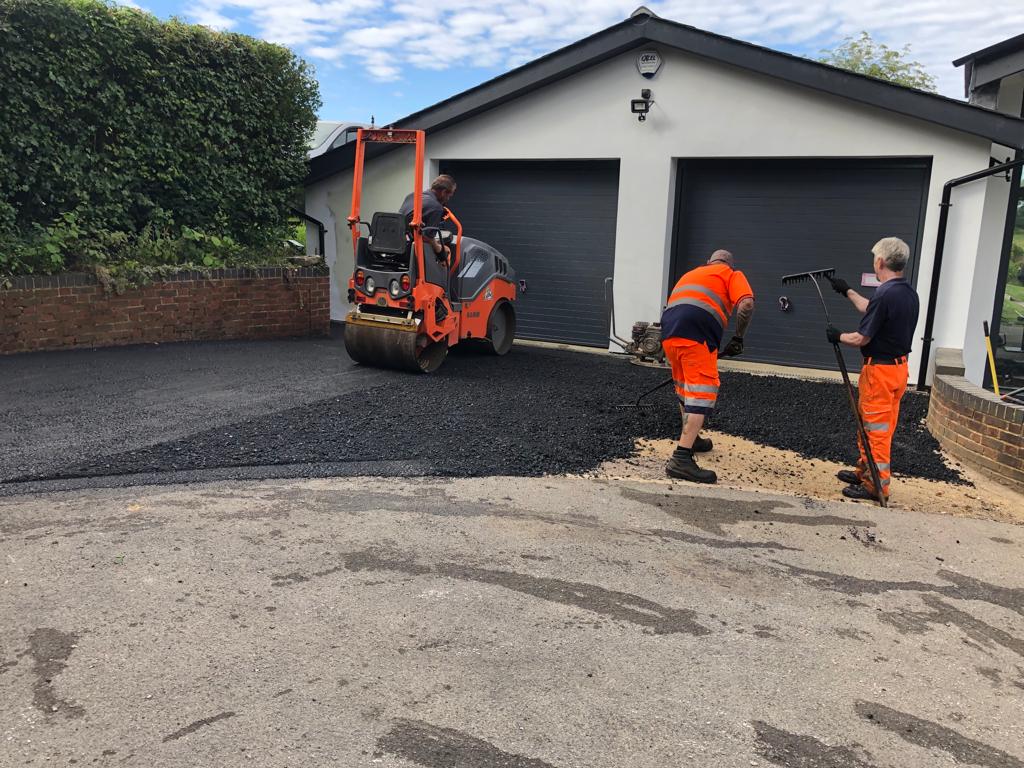When it comes to road surfacing, proper grading is one of the most critical factors in ensuring the longevity and functionality of the surface. Poor grading can lead to premature road damage, costly repairs, and unsafe driving conditions. At Redcliffe Surfacing Solutions, we understand the importance of proper grading for asphalt and bitumen surfaces in Redcliffe, QLD. In this blog post, we’ll outline how to spot poor grading and, more importantly, how to avoid the financial burden of extensive road repairs.
1. Water Pooling on the Surface
One of the clearest signs of poor grading is water pooling on the surface after rain. Roads should be designed with a slight slope to allow water to run off efficiently. When water is left standing on the road, it can seep into the layers below, weakening the foundation and causing cracks, potholes, and other forms of damage. This is particularly problematic in areas prone to heavy rainfall, like Redcliffe. If you notice persistent puddles on your road or driveway, it’s a sign that the grading was not done correctly, and repairs may be needed to fix the underlying issue.
2. Cracking and Potholes
Cracks and potholes are common signs of a failing road surface, often linked to poor grading. When water does not drain away properly, it can penetrate the road surface and compromise the integrity of the underlying layers. This leads to cracks, which can widen over time and turn into potholes. While some cracking is inevitable, especially on older roads, excessive or early cracking is a clear indication of improper grading. Fixing the grading issue can help prevent further deterioration and reduce the frequency of costly repairs.
3. Erosion of the Edges
Road grading doesn’t only affect the surface itself but also the surrounding areas. If you notice that the edges of the road or driveway are eroding, it’s likely due to poor water management, which stems from inadequate grading. Water should be directed away from the road, but if it’s flowing toward the edges, it can cause erosion that weakens the structure of the road. This not only affects the road surface but can also lead to larger infrastructure problems if left untreated.
4. Uneven or Wavy Road Surface
An uneven or wavy road surface is another common sign of poor grading. The road should be smooth and consistent, with no visible dips or rises. Uneven grading can cause the surface to sag in certain areas, making it uncomfortable and unsafe for vehicles. These dips can also collect water, further exacerbating damage to the surface. If you notice an uneven surface, it’s important to have the grading assessed and corrected to prevent more extensive damage in the future.
5. Poor Drainage Systems
A key component of effective road grading is the integration of a proper drainage system. Without appropriate drainage, water will accumulate on or around the road, leading to erosion, surface damage, and weakened sub-layers. If you notice that water is not flowing properly into the drainage system, or if there are signs of water damage near drains, it could be a sign that the grading was poorly executed. At Redcliffe Surfacing Solutions, we ensure that every road we construct or repair is equipped with efficient drainage systems to maintain the integrity of the surface.
6. Signs of Premature Wear
While all roads experience wear and tear over time, premature wear can often be traced back to poor grading. If a newly constructed or resurfaced road starts showing signs of wear too soon, such as cracking, fading, or sinking, it’s a sign that the grading was not done to the required standard. Proper grading ensures that the load is evenly distributed across the surface, reducing the risk of early damage and prolonging the lifespan of the road.
How to Avoid Costly Repairs
Spotting poor grading early on can save you from costly road repairs in the future. Here are a few steps to help prevent issues from escalating:
- Regular Inspections: Conduct regular inspections of your road or driveway, especially after heavy rain. Look for signs of water pooling, cracks, or erosion, and address any issues early on.
- Professional Assessments: If you suspect poor grading, it’s important to have a professional assess the situation. At Redcliffe Surfacing Solutions, we offer comprehensive grading evaluations to ensure that your road or driveway is constructed to the highest standards.
- Routine Maintenance: Even with proper grading, routine maintenance is essential to keeping your road in good condition. Regular sealing, crack repairs, and drainage system maintenance will help prevent larger issues down the line.
Conclusion
Grading plays a vital role in the longevity and performance of any asphalt or bitumen surface. By spotting the signs of poor grading early, you can avoid the high costs of extensive road repairs and ensure that your road remains safe and functional. At Redcliffe Surfacing Solutions, we specialise in professional road surfacing and grading services that are built to last.
Call us on: 07 3113 9873
Click here to find out more about Redcliffe Surfacing Solutions
Click here to complete our contact form and see how we can help with your driveway needs.

